In a scene that looks straight out of a mystery thriller, a woman in Xiamen, China, one day woke up in a hospital, only to find that she couldn’t hear her boyfriend’s voice anymore. Not just her boyfriend’s voice, but she couldn't hear any male voice altogether. What shocked her even more was the fact that she could still hear women’s voices quite normally. Later, she was diagnosed with a rare ear condition called “Reverse Slope Hearing Loss (RSHL),” reported Daily Mail.

Identified only with the surname “Chen,” the woman revealed that on the night before the said morning, she heard a bizarre ringing sound in her ears and also felt nausea. When she couldn’t hear her boyfriend’s voice, she visited an ear, nose, and throat specialist at Qianpu Hospital where she was told that she was suffering from this rare ailment. Dr. Lin Xiaoqing, the woman doctor who treated her, said Chen was able to hear her when she spoke but couldn't hear a male. "She couldn't hear him at all," said Dr. Xiaoqing.
RSHL refers to an ear disorder in which a person’s ability to hear low-frequency sounds is debilitated. According to AanviiHearing, these low-pitched sounds can include men's voices, bass tones in music, and rumbling sounds like thunder. On an audiogram, a graph that audiologists use to measure hearing levels, RSHL appears as a downward slope from low to high frequencies. Low-frequency hearing loss is rarer than high-frequency hearing loss, which displays an upward slope in the audiogram. According to Audiology & Hearing, for every 12,000 cases of hearing loss, only one person has RSHL.
Usually, a person hears a sound when sound waves enter the outer ear and travel through a narrow passageway called the ear canal, which leads to the eardrum, according to the National Institute on Deafness and Communications Disorders (NIDCD). Then the eardrum vibrates and sends these vibrations to three tiny bones in the middle ear named malleus, incus, and stapes. After amplifying these sound vibrations, these bones pass them on to the cochlea, a snail or spiral-shaped structure filled with fluid, in the inner ear.
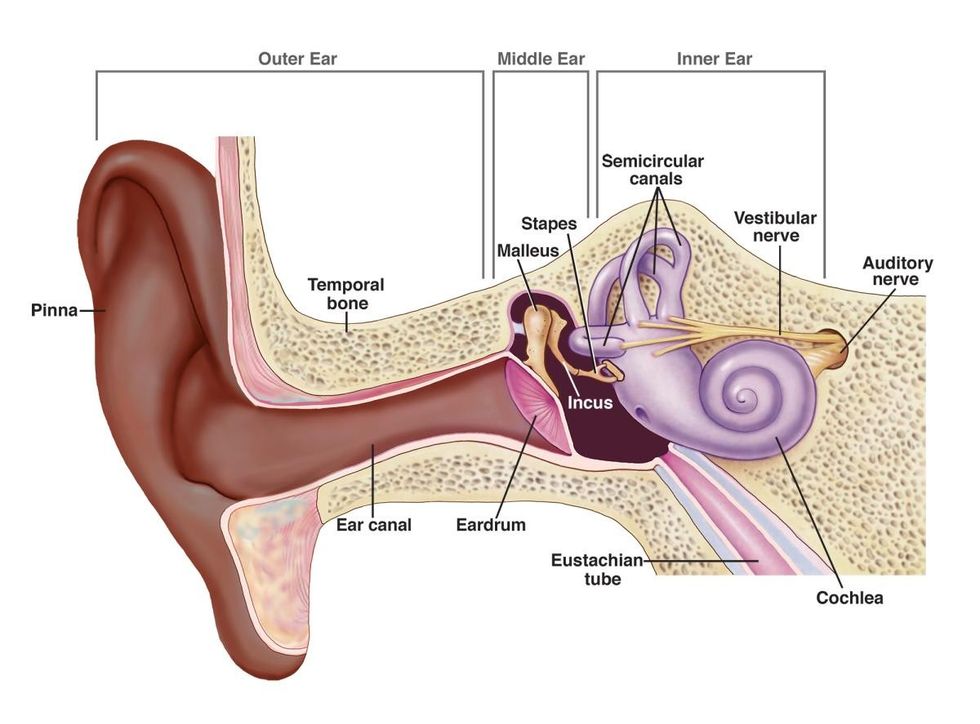
As the vibrations reach the cochlea, the fluid inside it stirs, causing ripples. These ripples cause the hair cells to move up and down. This triggers chemical reactions, prompting electrical signals that go to the brain and inform it about the sound, that the person hears. Therefore, the frequency of hearing loss depends on which part of a person’s ear is affected.
![Representative Image Source: 'Delicate Mechanism of the Ear', c1934. From The Treasury of Knowledge. [Richard Clay & Sons, Ltd., Bungay, Suffolk, 1934] (Photo by The Print Collector/Getty Images)](https://www.good.is/media-library/representative-image-source-delicate-mechanism-of-the-ear-c1934-from-the-treasury-of-knowledge-richard-clay-sons-ltd.jpg?id=55299610&width=980)
Speaking to Business Insider, Patricia Johnson, a doctor of audiology, explained that mainly, there are three causes for RSHL. First, "a particular gene might cause certain hair cells to never develop in utero," Johnson said. These tiny hairs are crucial for a person to recognize different sound pitches. Secondly, RSHL may also be the result of another ear condition, like Meniere's disease, which affects the fluid surrounding the hair cells, Johnson added. Apart from this, the condition could be triggered abruptly, as in Chen’s case, most probably due to a viral infection. However, Chen's RSHL, doctors believe, was caused by stress, overwork, and lack of sleep. They also confirmed that recovery was possible in her case.





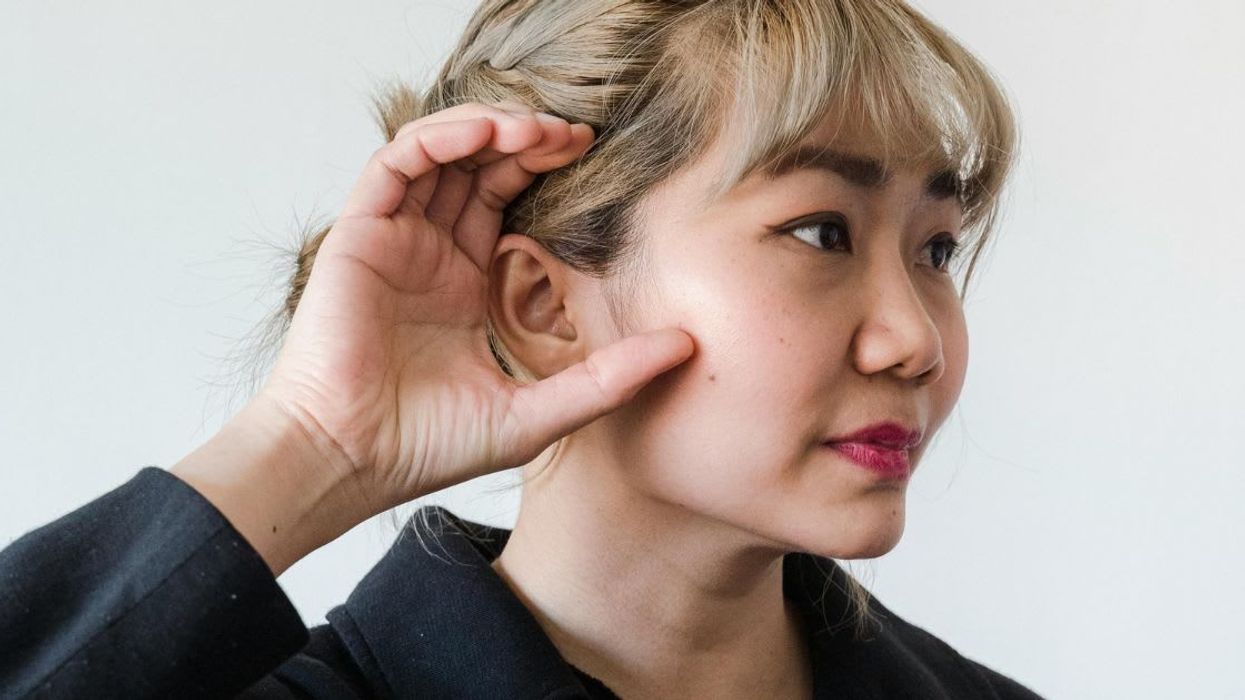











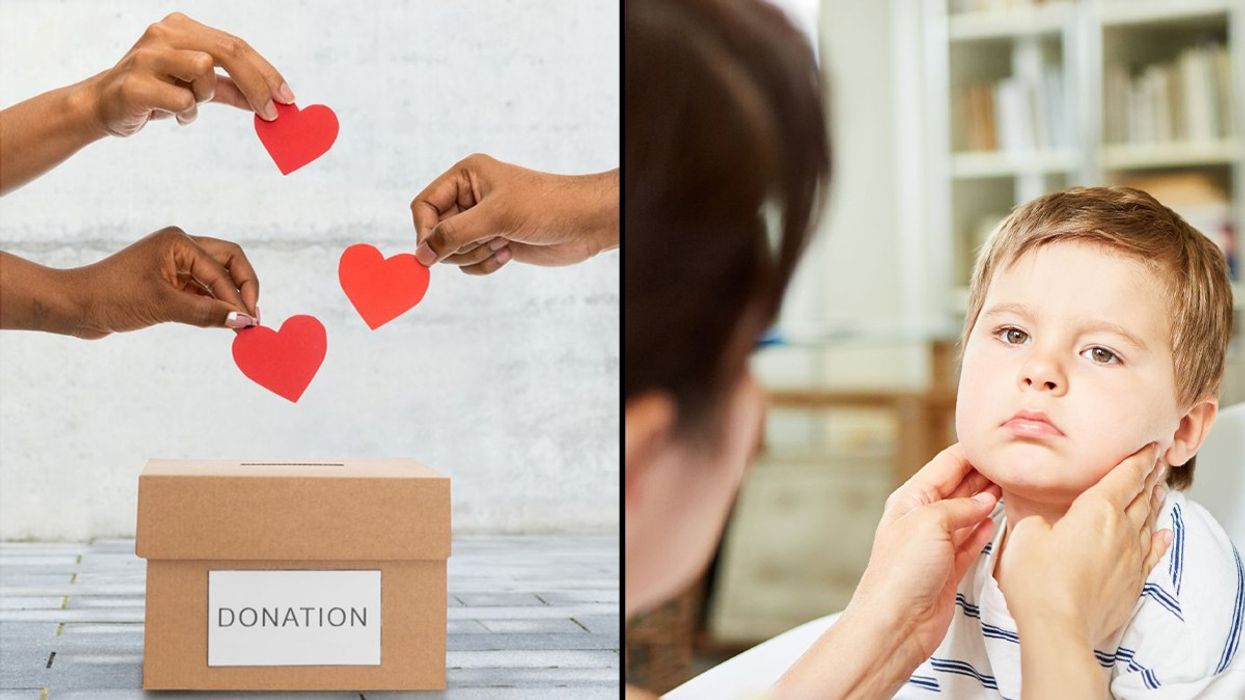
 A symbol for organ donation.Image via
A symbol for organ donation.Image via 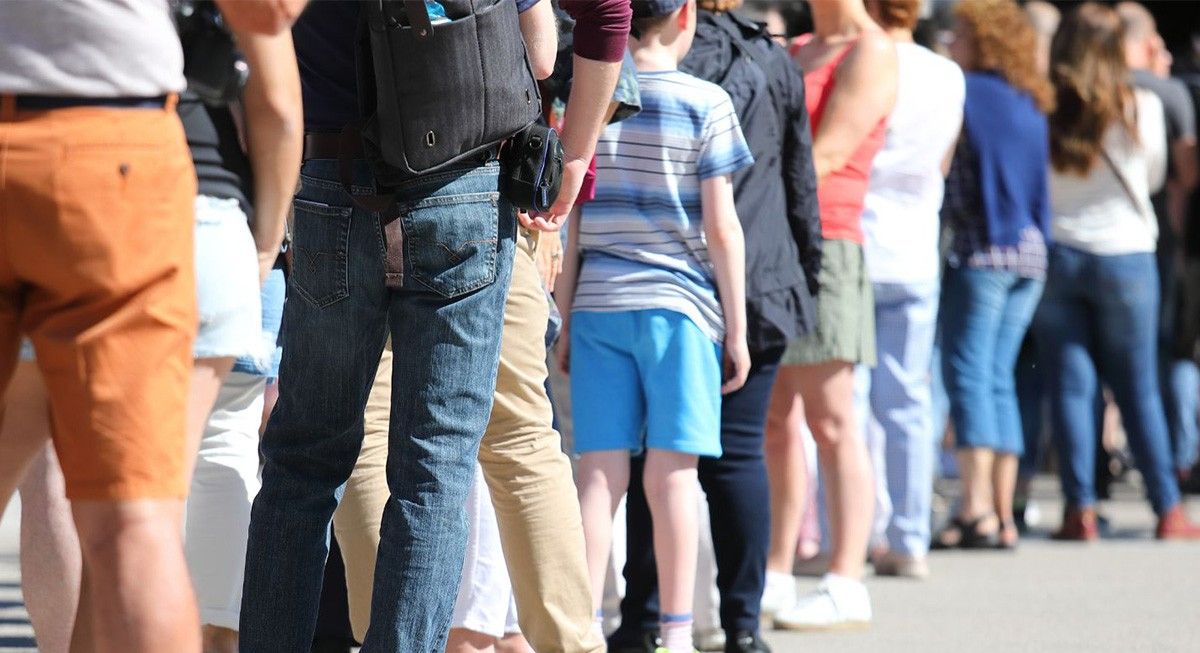 A line of people.Image via
A line of people.Image via  "You get a second chance."
"You get a second chance." 


 36 is the magic number.
36 is the magic number. According to one respondendant things "feel more in place".
According to one respondendant things "feel more in place". 
 Some plastic containers.Representational Image Source: Pexels I Photo by Nataliya Vaitkevich
Some plastic containers.Representational Image Source: Pexels I Photo by Nataliya Vaitkevich Man with a plastic container.Representative Image Source: Pexels | Kampus Production
Man with a plastic container.Representative Image Source: Pexels | Kampus Production
 Canva
Canva It's easy to let little things go undone. Canva
It's easy to let little things go undone. Canva
 Photo by
Photo by 
 Teens are waiting longer than at any point in the survey’s history. Canva
Teens are waiting longer than at any point in the survey’s history. Canva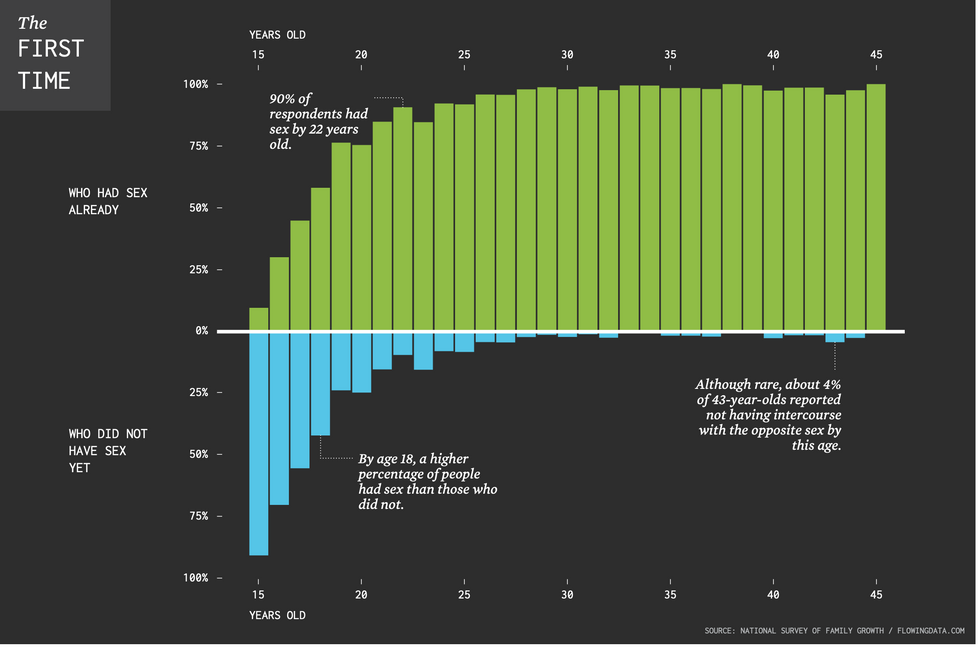 Chart on the age of a person’s first time having sex.National Survey of Family Growth/flowing data.com | Chart on the age of a person’s first time having sex.
Chart on the age of a person’s first time having sex.National Survey of Family Growth/flowing data.com | Chart on the age of a person’s first time having sex.